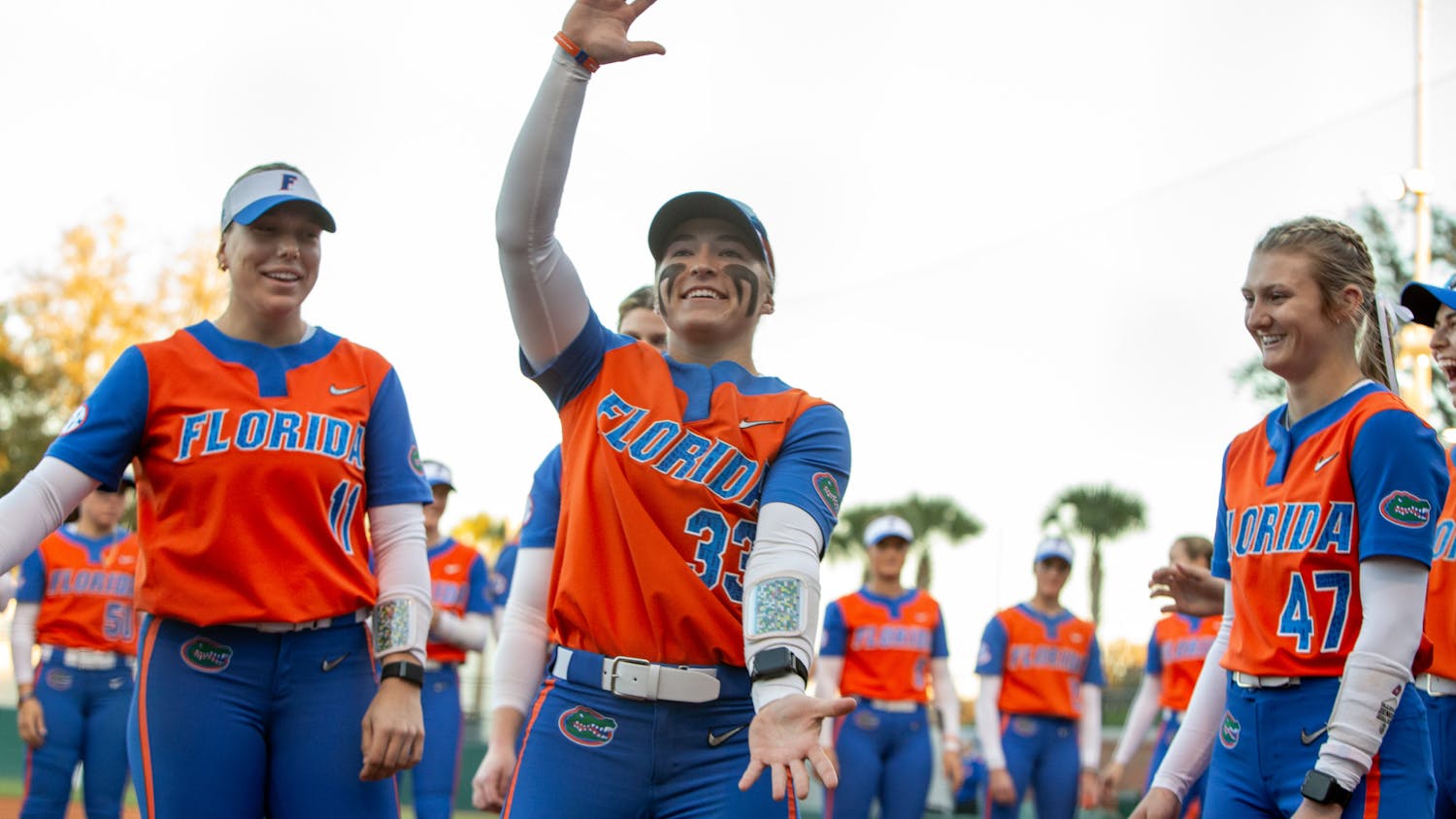UF professor uses science to teach writing
There’s a formula to writing well.
While teaching, UF business professor Yellowlees Douglas realized writing hadn’t been broken down into a science. Writing guides are typically ambiguous and confusing, she said.
That’s why Douglas researched how to make writing easy to read and understand, which she wrote about in her book, "The Reader’s Brain: How Neuroscience Can Make You a Better Writer." It was published earlier this fall.
"The book is designed to demystify what makes writing readable and how to understand it," she said.
To conduct her research, Douglas used data from eye tracking, where test subjects would be timed as they read a page. After people read the page, they were taught grammar and sentence structure, key elements of writing that allowed the test subjects to read more quickly. This proved people are able to better understand what they’re reading when they know elements of writing.
She said she wanted to write a concise and affordable book that could explain writing in a practical way to college students. Still, the book could be used by anyone interested in improving their writing skills, she said.
Douglas said those gifted in math and science can learn from her book because it uses data.
"It’s pragmatic but science-based," she said.
-Rachel Howard
UF researchers find way to print 3-D brains
A new technology developed at UF will make it possible to replicate someone’s brain.
With 3-D printing technology developed at the UF Department of Mechanical and Aerospace Engineering, neurosurgeons will be able to make a model of a patient’s brain before operating on it. This will allow doctors to practice the operation on a replica instead of the patient.
UF mechanical and aerospace engineering professor and the study’s researcher Tommy Angelini said he began researching how to print soft 3-D models about a year and a half ago. With the new technology, doctors will be able to replicate human cells and tissues.
The printer’s technology will also allow doctors to test medicines on cells to see what drugs are most effective, eliminating the need to test on cancer patients, said lead project author Tapomoy Bhattacharjee.
The second-year doctoral student said he thinks 3-D printing of soft materials has a direct impact on the medical industry.
The development can be valuable during high-risk surgeries because doctors can use patients’ MRIs as a plan for printing human-brain models out of hydrogels, which feel like a regular brain, Bhattacharjee said.
"You get this brain out, feel the brain and you can just practice the operation on the fake brain," he said.
Bhattacharjee said the UF College of Engineering is trying to make the technology available to UF medical students.
"Personalized medicine is the idea," Bhattacharjee said.
-Jennifer Jenkins
UF-based survey finds consumers’ confidence declining
Florida consumers aren’t as confident this month.
The September UF consumer survey showed an overall decrease in consumer confidence of about 3 percent, said Chris McCarty, the director of UF’s Survey Research Center in the Bureau of Economics and Business Research.
Floridians feel their personal finances are declining, and they don’t feel confident the U.S. economy is doing well, McCarty said. Those surveyed are less confident in the U.S. economy than people were in the 1960s.
However, he said consumers believe now is a good time to make purchases on big-ticket items, like cars and appliances.
McCarty said the surveys are important because the U.S. economy is largely based on how much money people spend.
"About 70 percent of our economy is people buying things, as opposed to export-driven like in China or Germany," he said.
The survey data can be particularly important during election season because low confidence ratings can encourage voters to analyze party economics, McCarty said.
Those with the most negative responses were more than 60 years old or had incomes over $50,000 a year, he said.
"These facts make sense given the stock market declines that happened last month," McCarty said.
-Emily Mavrakis






